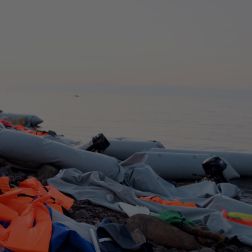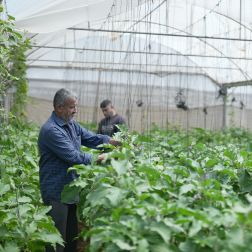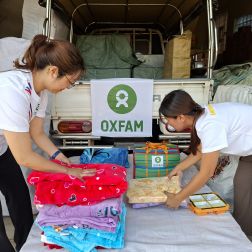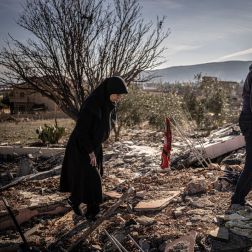- 8 mins read time
- Published: 26th August 2020
Three years on: Fighting COVID-19 in Cox's Bazar - the worlds largest refugee camp
Almost a million Rohingya Refugees live in Cox’s Bazar, Bangladesh - sprawling camps built across a hilly landscape.
Photos by Fabeha Monir / Oxfam. 19 May 2020
August 25th, 2020 marks three years since the start of a brutal military crackdown in Myanmar, which resulted in more than 700,000 Rohingya people fleeing to Bangladesh in search of safety.

Over half the refugee population are children.

Refugees live in close quarters, using communal toilets and water facilities - sometimes the most basic items, such as soap, are lacking.

"I have lived in this refugee camp for almost three years. There are many challenges we are facing including hot weather. It’s tough to live inside these tents. The water crisis is still here."
Shelters are made from bamboo and tarpaulin and are vulnerable to seasonal monsoons and cyclones.

During the monsoon refugees describe a ‘crisis for dry space’, with wet mud encroaching into shelters leaving no dry areas to sleep.

Conditions in the camps make refugees vulnerable to Covid-19.

The camps are severely overcrowded with up to 10 people sharing one room and 250 people sharing one tap.

“My family live up in the hill. We do not have any water supply there. Everyday I have to queue hours for collecting drinking water. I have heard about the virus. We have to wash our hands and face after reaching to our tent. But none of us could wash our hands regularly because we have limited water for drinking, if we waste water by washing hands, I have to spend entire day queuing for water.”
Communal water taps make social distancing virtually impossible.

“How can we stay at our tent. It’s very humid. I am living with eleven members of my family. We are asked to stay at home. I am very afraid of this virus. Everyone is wearing mask. I am wearing a mask too. But if I get infected by the disease all my family members will be infected. This is what I fear most”
When the virus first began spreading in the camps, rpeople were afraid as they had limited information.

“We are suffering a lot for humidity, and for water…We are queuing one hour for water. We have heard from others that our people are infected by corona virus. This is why we are now more afraid. Because of the disease people have to stay away from each other. So, I feel fear. It can spread from one another and people get infected easily. This is causing us fear”

“We are very afraid because every day we are hearing someone is getting infected by the virus. My husband and I are staying at home. We do not know what is waiting for us.”
Oxfam and our partners are adapting our work to ensure that people get what they need in these challenging times.


We’re helping people stay healthy by sharing information about the virus.

“I have learned what should we do to save ourselves from the virus. I will share this information in my area. We have to maintain distance and need to stay at home now. We need to wash our hands every time we return from outside."

We’re providing soap and hygiene kits.

We’re helping refugees keep social distance.

Oxfam and our partners provide clean water.

“Everyone is afraid of the virus. But we do not have enough water in the camp… Oxfam is distributing water inside the camp. We can only have drinking water in our home. How can we manage water to wash our hands”
We are working to maintain water and sanitation facilities.

We help refugees prepare for storms.

We are adapting to COVID-19 with new innovations, like contactless handwashing stations which are activated with a foot peddle to avoid transmission of the virus from touching the soap and taps.

The handwashing stations are activated with a foot peddle to avoid transmission of the virus from touching the soap and taps.


“I have never seen something like this before. Everyone from our blocks are using this new machine provided by Oxfam. We maintain distance by staying inside the circles made by them. They informed us that we should always maintain distance from each other, wear mask whenever we go out from the tent. I am afraid about the new disease. Already I heard the news of death. We cannot do much, we can only take precaution and stay safe."

"I know about the Coronavirus. I heard that we have to clean hands often with soap. Then we have to dry our hands. We have to do it to prevent the disease. We are not afraid. We know how to wash hands, how to be safe. We heard from volunteers, they told us."
Since 2018, close to a million Rohingya people, more than half of them children, have fled fled prosecution and violence in Myanmar and are now living as refugees in camps in Cox’s Bazar, Bangladesh They are living in extremely dire conditions amid increasing threats of floods and destruction to the camps on top of a potentially devastating COVID-19 health crisis as cases continue to be confirmed in the camps.




